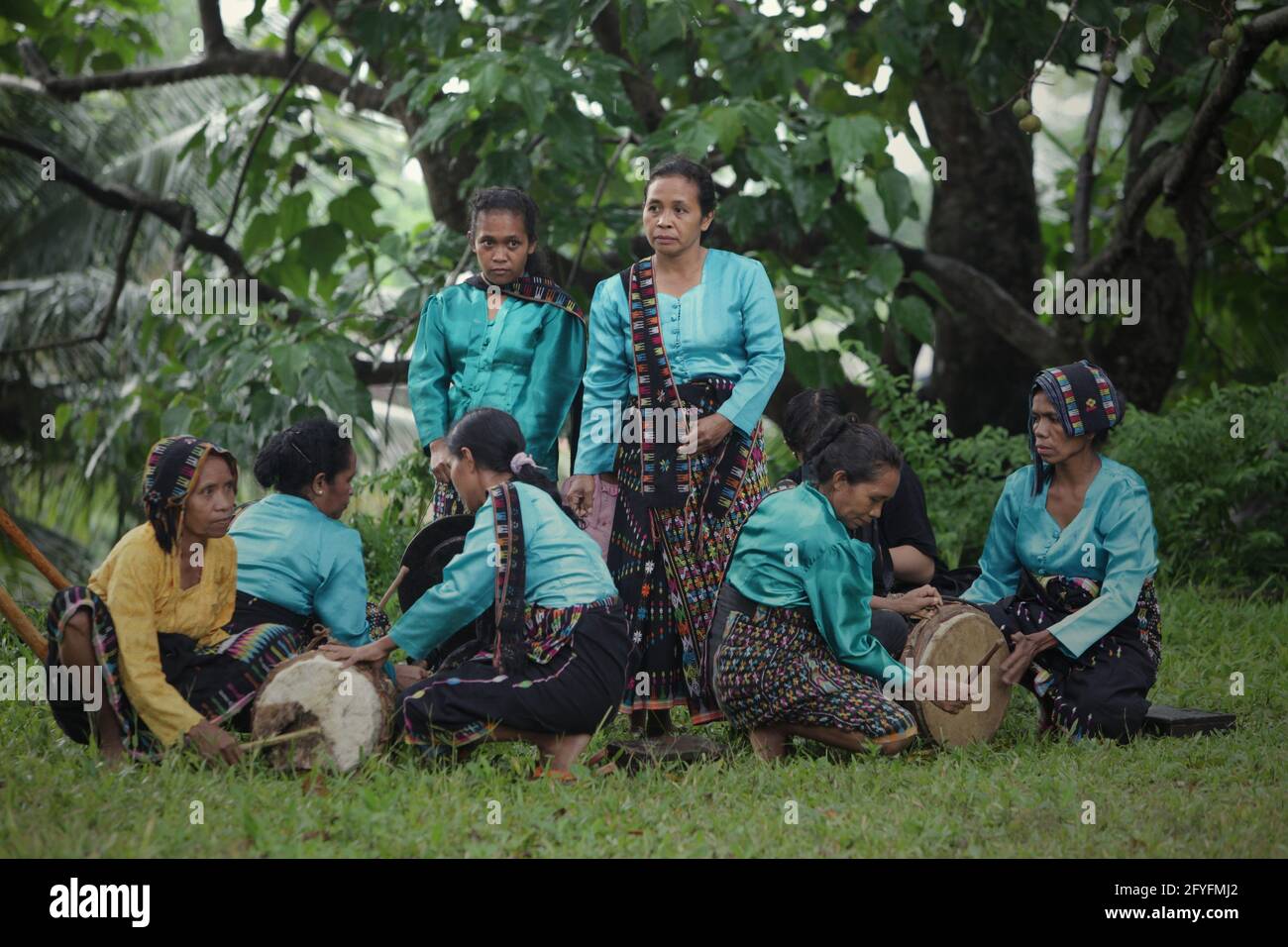Women playing percussive instruments as musical background for a show of "caci" (Flores Island's traditional whip fight, martial art) in Liang Ndara village, Mbeliling, West Manggarai, Flores, East Nusa Tenggara, Indonesia.

Image details
Contributor:
REY Pictures / Alamy Stock PhotoImage ID:
2FYFMJ2File size:
60.2 MB (1.7 MB Compressed download)Releases:
Model - no | Property - noDo I need a release?Dimensions:
5616 x 3744 px | 47.5 x 31.7 cm | 18.7 x 12.5 inches | 300dpiDate taken:
1 December 2010Location:
West Manggarai, Flores, East Nusa Tenggara, IndonesiaMore information:
This image could have imperfections as it’s either historical or reportage.
West Manggarai, Flores Island, Indonesia: Whip fighting, ecotourism, and "10 New Bali" Liang Ndara, West Manggarai, Indonesia---On a rainy day in December, a group of farmers abandoned their farmlands. They wore traditional attire. Women were dressed in blouse and woven textile, while some men took buffalo-shaped head cover, whip, stick, and shield. "This is a way to celebrate our culture, " said Primus Hata, leader of Nipuceki art group, referring to "caci"--a kind of martial art where men conduct duels using whips, sticks and shields. Once a part of harvest celebration ritual, caci has been transformed as a tourist attraction that provide alternative source of income for the farmers.. According to Deni Alfian MBA, a researcher at University of Indonesia, the agricultural community of Liang Ndara village has been "successful in ecotourism", which is a part of the "adaptation process to a global tourism phenomenon" in the nearby town Labuan Bajo. Labuan Bajo, approximately 20 km away, is the gate to Komodo National Park--a very popular destination, one of the destinations named by Indonesia's government in the ambitious "10 New Bali" project. "The most essential factor of the success (in Liang Ndara) was the sensitivity towards the change that is taken place in their surroundings, " wrote Deni Alfian in a paper published in December 2020 issue of Jurnal Antropologi Isu-Isu Sosial Budaya (anthropological journal of socio-cultural issue). Another key: their "openness to build network with different parties, especially NGO that support ecotourism." His tunes are in contrast with an academic report written four years earlier by Aurilia Hansni Yanita, a student at Tourism Faculty, Udayana University. "The practice of ecotourism in Liang Ndara village is not the same as the principles of Balinese ecotourism. There are eight criteria of ecotourism which is not fulfilled yet. The ideal effort of ecotourism development is by fulfilling (those criterias), " she wrote.